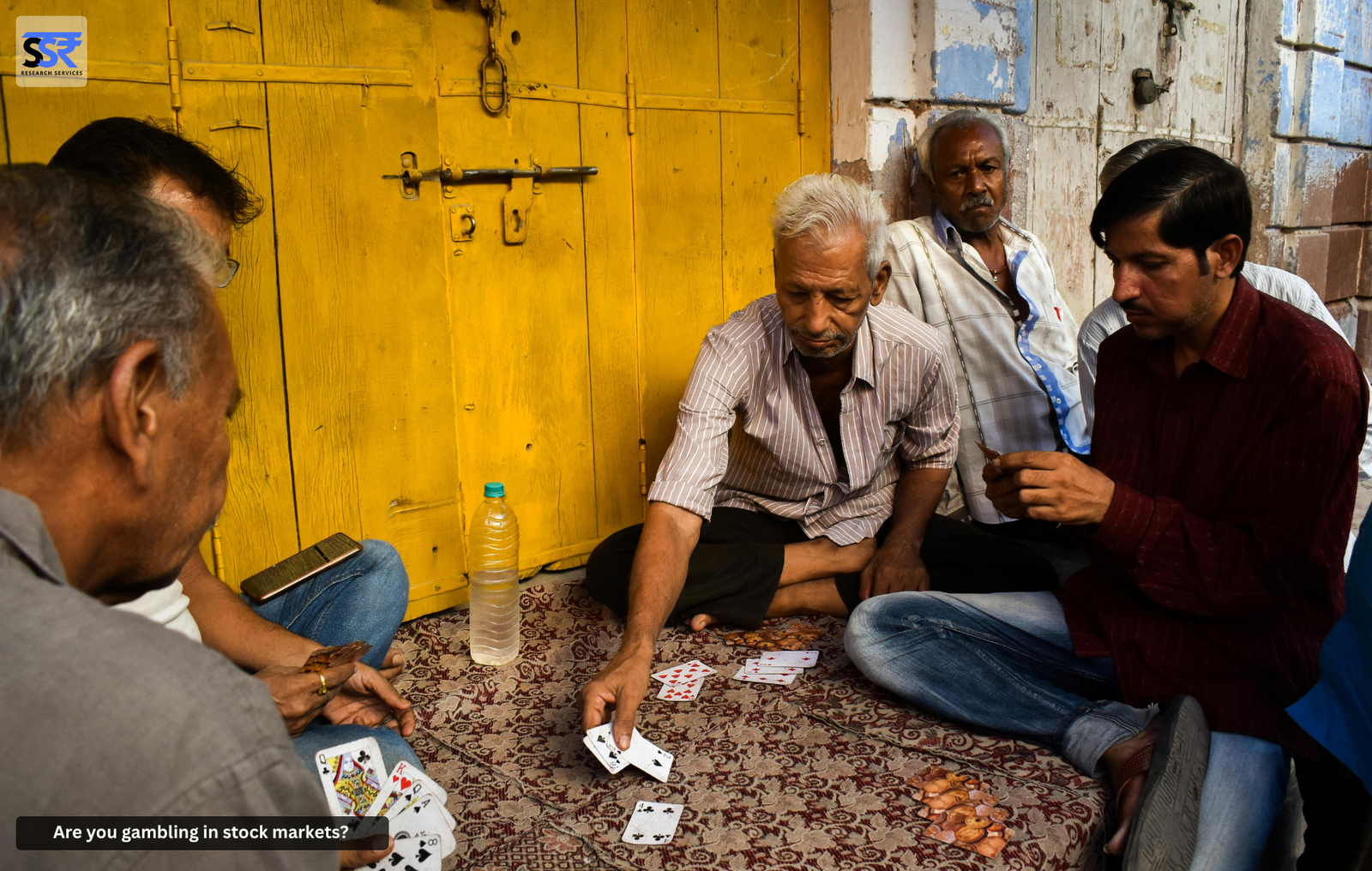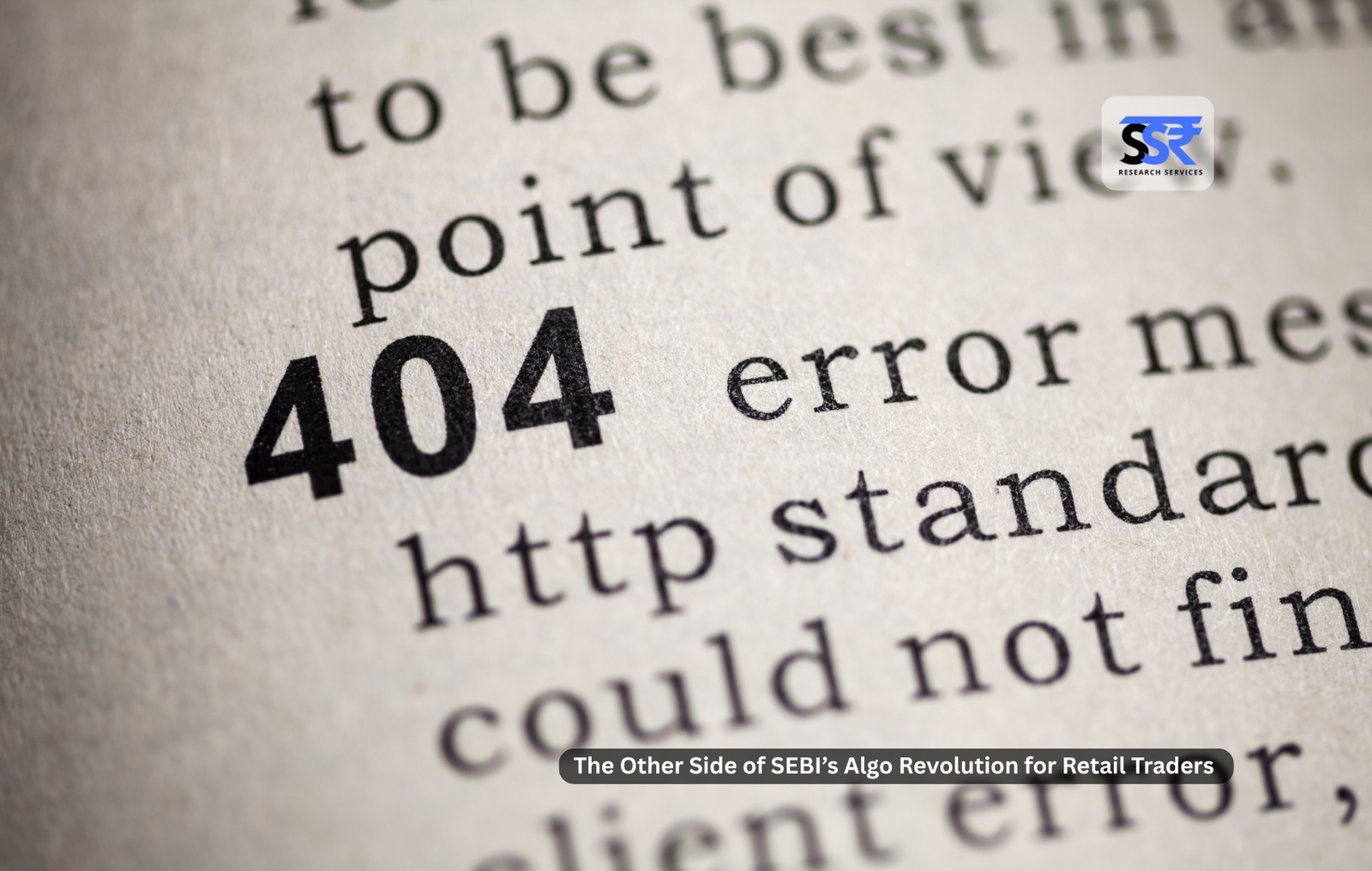
Are You Gambling in Stock Markets?
In India, trading in the stock markets is often called Jue baazi – a Hindi term that equates it to speculative betting. Traders are casually branded as juaris i.e. gamblers, even down south in Tamil Nadu traders are called Soothaadigal a term for gamblers. Not the most flattering thing no?
But being the curious sort, I began to wonder – where does this moral judgment around trading come from? And more importantly, is it even accurate to label stock trading as gambling?
Let’s dig in.
Why do some folks still think trading is no different from Teen patti?
Rewind just a few decades and you’ll find that the Indian stock market was a different beast. Information asymmetry was rampant. Access to reliable information was a privilege a very few had. Retail investors? If my memory serves me right, they were practically flying blind. Even those on the trading floors knew little of the broader picture.
So it’s no surprise that many who experienced those opaque and often manipulated markets still carry a lingering mistrust. They saw a game tilted against them, and in many ways, it was.
But is that still true today? Not really.
We’ve come a long way with regulation, transparency, and access to data. Still, the scars of loss run deep. Thanks to behavioral economists like Kahneman and Tversky, we now know that we overweight losses mentally. A ₹10,000 loss hurts more than a ₹10,000 gain brings joy.
And when we associate the idea of speculation with gambling, our minds instantly bring up all the negative connotations – stories of ruin, addiction, and deceit – accentuated by centuries of cultural conditioning.
Ancient India & Gambling
Consider this – the Rigveda, a text dated to around 1500 BCE features a hymn called Akṣasūktam, or “The Gambler’s Lament.” Remember that’s a good 1,000 years before the Mahabharata.
Here’s one telling verse from the hymn:
“Dice are indeed goads that torment and destroy, and cause remorse and agony. For the winning gambler, they are like sons who keep sucking wealth. For the loser, they, covered with honey, destroy him again.” (Verse 7)
Clearly, since ancient times, gambling was considered a force of destruction, and perhaps rightly so. Therefore when we equate trading with gambling, may be we inherit these deeply ingrained fears also.
Gambling vs. Speculation vs. Investing: Where’s the Line?
Let’s break this down.
Yes, all three – gambling, speculation, and investing – involve placing bets on the future. But that’s about where the similarities end.
To really understand the distinction, we need to view them on a spectrum of chance vs. skill.
- Slot Machines? Pure chance. No skill.
- Poker? Still gambling, but skill matters.
- Horse Betting? A bit more analytical – look up Bill Benter, the legendary quant who cracked horse betting.
But what do all of these have in common? No economic utility.
Economic Utility – The Litmus Test
Economic utility is the thing that separates speculation and investing from gambling.
In gambling, there’s no value creation. It’s a pure wealth transfer – one person’s gain is another’s loss. Society as a whole gains nothing.
Speculation, on the other hand, involves skill and strategy. Even if the game is tough and often negative-sum due to intermediaries like brokers, exchanges, and taxes, there’s room to play smart and win.
Financial derivatives also have considerable economic utility, they are products that help manage risks, increase market efficiency and allow for better capital allocation through leverage.
So no, speculation isn’t necessarily gambling.
Let’s Talk Game Theory
Allow me to channel my inner John von Neumann for a minute.
Here’s a breakdown:
Zero-Sum Games: A classic tug-of-war. One person’s win is another’s loss. Example: Derivatives trading, before costs.
- A brings ₹100
- B brings ₹100
- One wins ₹200, the other loses ₹100
Negative-Sum Games: Here, even the winner ends up with less than they started with. Example: Speculation with costs like brokerage, slippage, and taxes.
- A brings ₹100
- B brings ₹100
- Middlemen take ₹20
- Winner gets ₹180, the other loses ₹100
Positive-Sum Games: Everyone can win. Think long-term equity investing. Example:
- A brings ₹100
- B brings ₹100
- After business growth and dividends, both take back ₹110 each
I think knowing this clearly helps us stop moralizing and start looking at the space more critically.
Skill and Strategy Make All the Difference
No matter the type of game – zero, negative, or positive sum – if it allows for skill and strategy, the odds can tilt in your favor. Maybe not drastically, but meaningfully.
And this is where speculation parts ways with gambling. You’re not just throwing dice and hoping for the best. You’re learning, analyzing, improving. You’re playing a strategic game.
The Moral Halo Around Investing
Investing, especially long-term, is often held up as the most “respectable” sibling in this trio. Why? Because of its potential to be net positive – to create value for all participants and the economy at large.
But here’s a truth bomb, even investing doesn’t guarantee success. Many have lost money holding onto seemingly solid stocks. Value can erode. Businesses fail. Markets crash.
So while investing is structurally better, success still depends on knowledge, discipline, and yes, a bit of luck.
Speculation Isn’t Immoral – Being Uninformed Definitely Is
The key takeaway? If you’re engaging in a domain where skill can help you win, you’re not gambling. You’re competing.
That said, diving into markets without knowing the rules, tools, and strategies? Now that’s dangerous. Not immoral but certainly unwise.
By the way, did you know the Supreme Court of India ruled Rummy as a game of skill versus Teen Patti. No I am not recommending Rummy, that was just a tidbit for you to look up.
A Final Thought
Ernest Cassel, an English banker from the early 20th century, once said:
“When, as a young and unknown man, I started to be successful, I was referred to as a gambler. My operations increased in scope. Then I was a speculator. The sphere of my activities continued to expand, and presently I was known as a banker. Actually, I had been doing the same thing all the time.”
So maybe after all it’s less about the game and more about how you choose to play it.
I am on X @mysandz follow me for the latest blog updates. If you are serious about systematic quant based investing or trading explore our subscription plans here.




